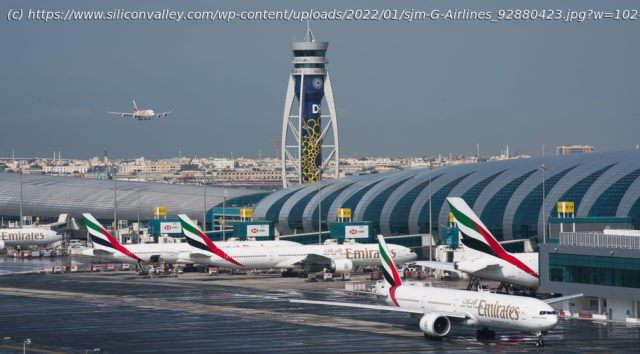By midafternoon Wednesday, airlines had canceled more than 250 flights, according to FlightAware. That was a small percentage of total U.S. flights, however, and far fewer than cancellations during…
By Jon Gambrell and David Koenig| Associated Press DALLAS — Some flights to and from the U.S. were canceled on Wednesday even after AT&T and Verizon scaled back the rollout of high-speed wireless service that could interfere with aircraft technology that measures altitude. Carriers that rely heavily on the wide-body Boeing 777 canceled flights or switched to different planes following warnings from the Federal Aviation Administration and Boeing. But airlines that solely or mostly fly Airbus jets, including Air France and Ireland’s Aer Lingus, seemed unaffected by the new 5G service. By midafternoon Wednesday, airlines had canceled more than 250 flights, according to FlightAware. That was a small percentage of total U.S. flights, however, and far fewer than cancellations during the Christmas and New Year’s travel season, which peaked at more than 3,000 a day when airlines were hobbled by winter storms and large numbers of workers calling in sick because of COVID-19. Airlines for America, a trade group, said cancellations were limited because telecom providers agreed to temporarily reduce the rollout of 5G near airports while industry and the government work out a longer-term solution. U.S. officials had said that even with the concession, there could be some cancellations and delays because of the way 5G affected equipment on certain planes. At O’Hare International Airport in Chicago, Sudeep Bhabad said his father-in-law’s flight to India was cancelled. “They have to resolve this problem,” Bhabad said. “It would have been a lot better if they had resolved it way before and we knew this in advance, instead of, like, finding out when we are here at the airport.” Similar mobile networks have been deployed in more than three dozen countries, but there are key differences in how the U.S. networks are designed that raised concern of potential problems for airlines. The Verizon and AT&T networks use a segment of the radio spectrum that is close to the one used by radio altimeters, devices that measure the height of aircraft above the ground to help pilots land in low visibility.






